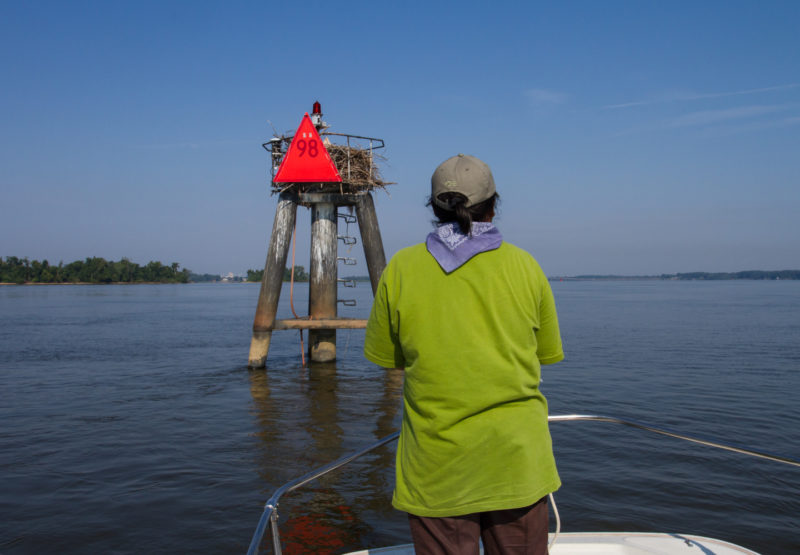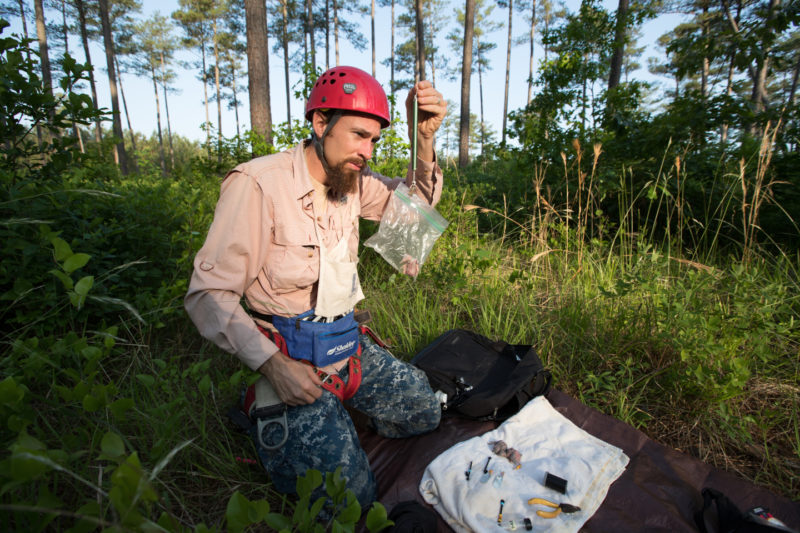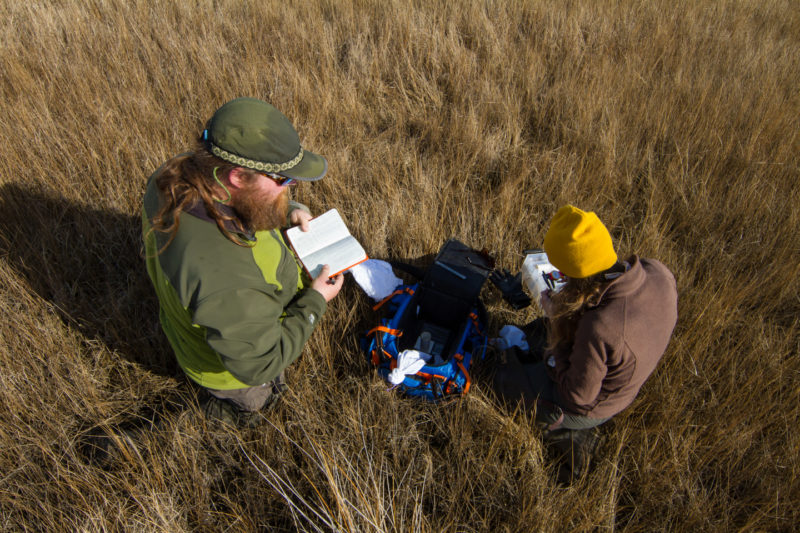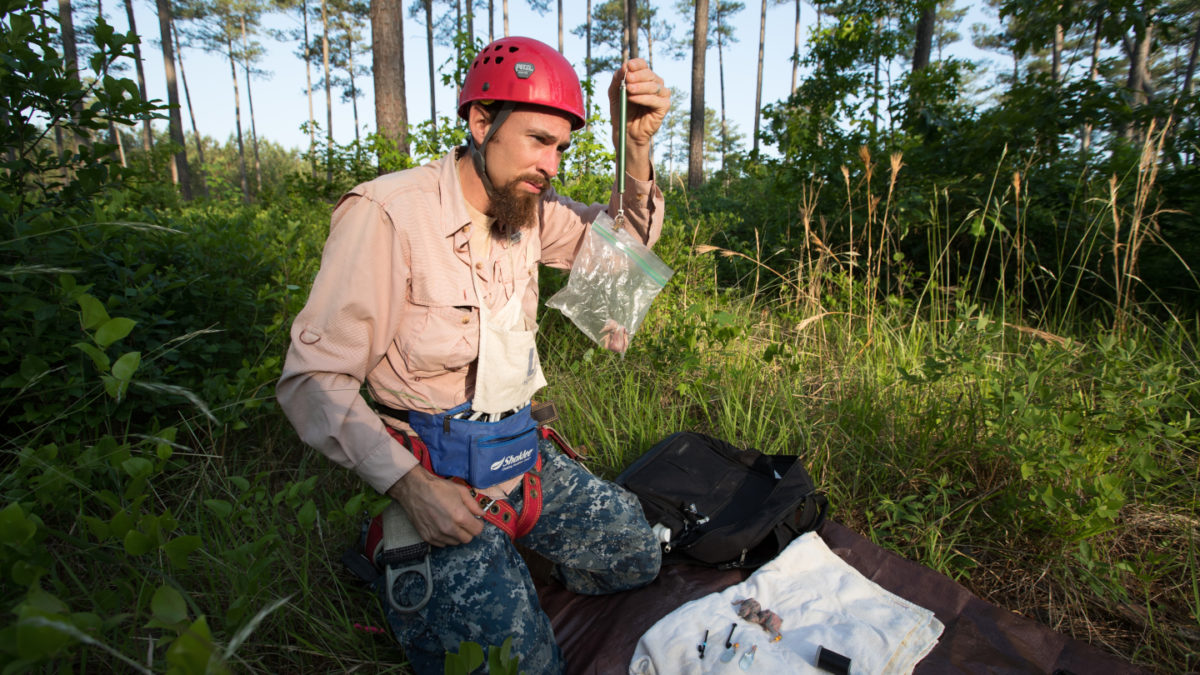Desperately seeking facts in a post-truth society

Chesapeake Bay ospreys continue to experience poor breeding performance due to starvation
September 11, 2024
Heron Heyday
October 9, 20249/19/24
“If you don’t want to hear the truth, make up your own like everybody else,” is the response delivered by Eddie Wilson to lead guitarist Rick Diesel in the classic film Eddie and the Cruisers. Too many of us seem to be taking Eddie’s advice these days. We feel like we are entitled to our own truth, our own set of facts. Reality seems to play a diminishing role in shaping our beliefs. Unleashed from the constraints of facts we too often find ourselves adrift on a sea of make believe.
A fact is something that is known or proven to be true. In the scientific world, facts are verified by repeated observations or experiments and are proven to an acceptable level of certainty. Historical facts such as “George Washington was the first president of the United States” are known to society and accepted by documentation. Facts are independent of beliefs or opinions. An opinion is a view or judgment in the mind about a particular subject. It may or may not be based on fact. An opinion may become an “argument” if it is based on facts or principles. However, most casual opinions in society are based on feelings, hearsay or limited personal experience.

In our modern society, we have become fascinated with the temperature of the populace on every conceivable topic from the most popular spring color to who is the best baseball player in history. We are awash in opinion polls and every day we are expected to endure a wide array of assessments about the changing whims of society. Opinion polls have their roots in designing effective marketing campaigns and increasingly as tools in political campaigns. They are a good way for us to assess what the public feels about specific subjects and to track those feelings over time. Opinion surveys are no substitute for facts. Consensus does not always shine a true light on the best path ahead. Whether or not the majority of Americans believe that the planet is warming has no influence on decades of carefully collected data that proves that it is. The polling only serves to highlight that a majority of us are out of touch with the reality of a changing planet. Regardless of the topic, prioritizing opinion polls over facts when making decisions about critical policy is misguided and may lead to catastrophic outcomes.

Unfortunately, we live in a time when special interests often have incentives to cast doubt on facts to further their own agendas. By muddying the waters just enough corporations and special interests may tip the scale of policy makers and the public in their favor. To accomplish this, special interests typically do not collect their own data to challenge existing research, they merely express their “opinions” that the work or conclusions are in some way flawed (always flawed in the direction of their interest). This short-circuiting of the scientific process is dishonest and self-serving. Policy makers and others who promote this kind of subversive behavior are complicit in the dishonesty.
Too many media outlets are also complicit in this dishonesty through lazy journalism. Reporters present opinions alongside proven facts without any distinction. They present these sources as having equal weight and credibility. They seem to feel that making an attribution of who made a statement represents the end of their responsibility as a journalist. It does not. It is the responsibility of the journalist to investigate the credibility and motivation of a source and convey the full context to a reader. Journalists who do not take the time to clarify the quality of sources do not serve the truth and break a sacred trust with the public they have committed to inform.

For scientists who have devoted their entire life to painstakingly establishing facts or an understanding of how the universe works, these are frustrating if not insulting times. The careful design, execution and analysis of a project to answer a specific question may take years of effort. Many projects are borne out of curiosity and commitment to the truth where the researchers are paid nothing for their efforts. One of the enduring satisfactions and payments of doing good science is that when all of the self-serving statements and distractions fade away, the facts will stand as a boulder in the prairie that generations of wagon trains have used to find their way. Once established, facts have a permanence and gravitas all their own.

A society that turns away from facts dooms itself to wander aimlessly through the desert. As concerned citizens we must become more active consumers of information. We should accept no less commitment to the truth from our public officials. This is the only way that we as a responsible society can move forward with our eyes fully open and fixed on the horizon.

